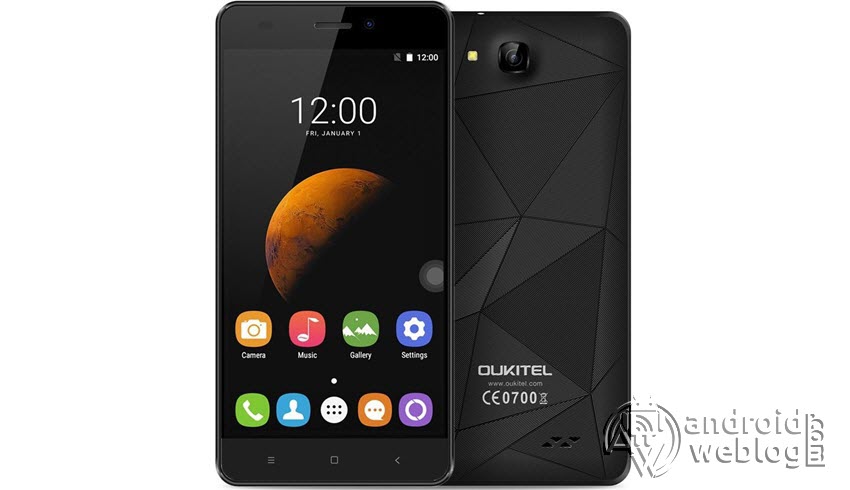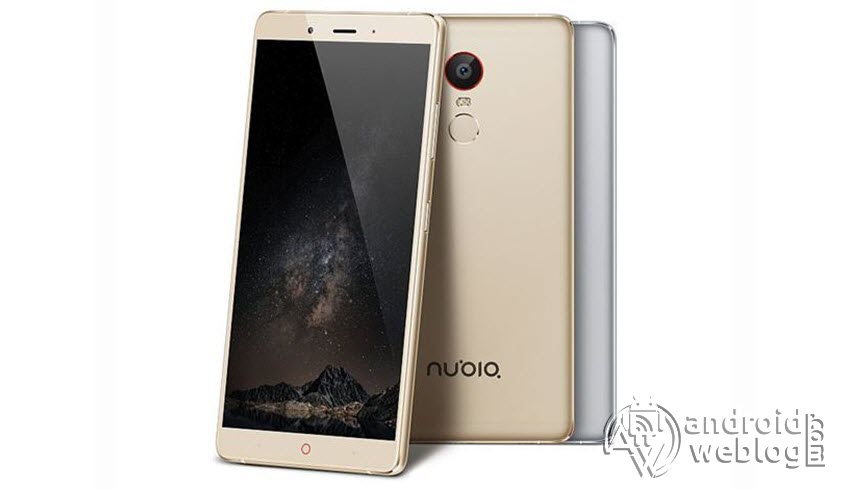How to Root Xiaomi Mi 10 (umi) and Install TWRP Recovery 3.6.2

If you own a Xiaomi Mi 10 and also want to root the device and flash TWRP Recovery 3.6.2, then you are on the right page.
The Xiaomi Mi 10 features the specifications Chipset Qualcomm SM8250 Snapdragon 865 5G (7 nm+), CPU/ Processor Octa-core (1×2.84 GHz Cortex-A77 & 3×2.42 GHz Cortex-A77 & 4×1.80 GHz Cortex-A55), GPU Adreno 650, Display 6.67 inches, 109.2 cm2 (~89.8% screen-to-body ratio), Super AMOLED, 90Hz, HDR10+, 500 nits (typ), 1080 x 2340 pixels, 19.5:9 ratio (~386 ppi density), Corning Gorilla Glass 5, Internal Storage/ RAM 128GB 8GB RAM, 256GB 6GB RAM, 256GB 8GB RAM, 256GB 12GB RAM, Main Camera Quad Camera Sensor / 108 MP, f/1.7, (wide), 1/1.33″, 0.8µm, PDAF, OIS / 13 MP, f/2.4, 12mm (ultrawide), 1/3.06″, 1.12µm / 2 MP, f/2.4, (macro) / 2 MP, f/2.4, (depth), Selfie Camera 20 MP, f/2.0, (wide), 1/3″, 0.9µm, Battery Li-Po 4780 mAh, non-removable, Fast charging 30W, Power Delivery 3.0, Fast wireless charging 30W, Reverse wireless charging 5W, Model Number M2001J2G, M2001J2I
If you are an Android Enthusiast and want to Root and Install TWRP recovery on your beloved, then you have landed on the right page. In the due course of the article, we will be guiding you through the process to root Xiaomi Mi 10.
The TWRP features the material design, and attractive user interface (UI), and by following this guide you can install the latest TWRP for Xiaomi Mi 10. You can download TWRP Recovery from the links provided in the pre-requisite section of this article. Kindly note that this is an official TWRP recovery and is only for Xiaomi Mi 10 (Kindly confirm the model by going to Settings>About). The process given below is merely for rooting and installing TWRP on Xiaomi Mi 10 does not try out this method on any other device.
If you want to unleash the full potential of the hardware of your Xiaomi Mi 10, then rooting and flashing custom recovery like TWRP is the main concern. The Stock ROMs have often limited and unsupported features in the sense of Customization. When you have a rooted device and also flashed TWRP recovery, then you are free to install any Custom ROMs, Mods, Kernel, and Xposed, etc., as well as many apps that requires root access to work properly. You can easily root the device with One Click Android Root Tool, with either via PC or through the APK, which is a quick process.
Table of Contents
Brief Details and Advantage of TWRP Recovery
TWRP (Team Win Recovery Project) is an open-source, community development project. By flashing the TWRP, your device will be enabled to install any custom firmware, rooting your smartphone, mod zip files for customizations, Xposed Modules for customized features, one-click root and unroot processes. Apart from that, it allows you to take Full Nandroid Backup and restore it later, one-click image file flashing, remove bloatware, overclock and underclock. Using TWRP, one can easily clean Wipe, Cache, and Data after flashing any image file to reflect the changes and rectify minor errors due to cache.
For installing the TWRP, your Xiaomi Mi 10 phone must have the Unlocked bootloader. That means you have to firstly unlock the bootloader to root your device as well doing any customization.
Disclaimer: The AndroidWeblog.com covers although everything in a very neat and a processed manner so that our readers get exactly what they want, still there are meager chances of basic issues that may arise out of the listed steps here. Hence it is in the sole interest of the user to follow the steps very cautiously so as to stay away from any mishappenings with your device.
Rooting and flashing the Custom ROM firmware, certainly without any doubt voids the warranty of your device and AndroidWeblog.com in no way will be held responsible for warranty void or your bricked device.
Prerequisite
Ensure to check your model number, which must be:
- Xiaomi Mi 10 (Codename: umi)
You must have to ensure that prior to rooting your phone, you have read thoroughly the disclaimer and you agree to proceed further on your risk.
- Phone Should be Charged
Your phone must be 70% charged at least, else, it may lead to complications sometimes while experimenting. Why take the risk, try to charge it fully.
- Back-Up
If you are either going to root your phone or install a Custom ROM, it is a good habit to make a back up of your phone. Make a back up of all your media like images, videos and all on your PC and your contacts on Cloud.
- Enable USB Debugging
(Applicable only for PC method, Skip if you will use APK method)
You must enable the USB debugging option by going into Settings, Applications, and Developer options.
Downloads For Rooting Xiaomi Mi 10 (umi)
Download Xiaomi USB Drivers here.
Download Universal ADB Drivers here (If your PC have already drivers installed then skip this)
Download platform-tools/ SDK Tools package from Android SDK on PC from here. (Android command line tools> SDK Tools package)
Download TWRP Recovery for Xiaomi Mi 10 from here:
TWRP Recovery 3.6.2 (twrp-3.6.2_12-v3.7_A12-umi-skkk.img)
Download SuperSU by Chainfire from here.
Download Magisk Manager from here.
Make sure that you have downloaded the required files (link in the pre-requisite section of this article). Then, proceed to the steps.
Steps to Unlock Bootloader of Xiaomi Mi 10 (umi)
Note: If you have already unlocked bootloader, then skip these steps.
Since Poco Phones comes with MIUI pre-installed, so it shares the same process of the Xiaomi smartphones to unlock the bootloader. Since its anticipation, Xiaomi provides its users the ability to play with their phones, as Xiaomi doesn’t restrict the uses to unlock the bootloader.
Step 1: Add your Xiaomi Mi 10 to the Mi account registered on your phone. Then, make sure that you have taken a full backup of your phone, as an unlocking bootloader would delete all data on the smartphone.
Step 2: Visit the MIUI website’s MiUnlock Download page, after visiting, just Download Mi Unlock app to your PC. Launch the Mi Unlock software and Sign in with your Mi Account/ ID. Make sure to register an account with proper details, if it is already registered, which is a general case since you are a Mi user, then it’s good and well.
Step 3: Now, go to the settings on your smartphone, and then log in to the Mi Account and wait for a minimum of 7 days. If you have already logged in for at least 7 days, then you are free to skip this step.
Step 4: Navigate to the Settings > Mi Account > Mi Cloud and then enable Sync’ & ‘Find Device’. We would suggest to Sync all App data at least once.
Step 5: Now, enable developer options, navigate to the Settings > About Phone > and tap at least 7-8 times on MIUI version until it says ‘You are now a developer.’
Step 6: Now, open the Developer options, and then go the Settings > Additional Settings > Developer Options. In the developer options interface, enable OEM unlocking and USB Debugging.
Step 7: Connect the device to the active internet connection on the same number that has been used in the Mi account. Then, navigate to the Mi Unlock Status (in Developer options) and then link Mi Account. Now, boot the Xiaomi Mi 10 in Fastboot mode. Press and hold Volume Down + Power button together and release all buttons together when Mi Bunny robot image appears on the screen.
Step 8: Now, ensure that your device is connected to the active internet connection. Now, open Mi Unlock Tool and then sign in with the same Mi account which has been used on Xiaomi Mi 10. It would detect the phone, when it displays your device, then just click on ‘Unlock Now’ button. This would now unlock the bootloader of the Xiaomi Mi 10 smartphone and would erase all data on the smartphone.
Note: If the Mi Unlock Tool stops at 99%, then don’t panic and try again in the next few days with the same method. Hopefully, the bootloader of Xiaomi Mi 10 would be unlocked this time.
Now, you can Root Xiaomi Mi 10 as the bootloader of your device is already unlocked.
Steps to Flash/ Install TWRP Recovery 3.6.2 on Xiaomi Mi 10 (umi)
Step 1: Assuming you have already downloaded the platform-tools from Android SDK (SDK Manager) platform-tools on your PC. The platform-tools contains the required ADB and fastboot binaries.
Step 2: Make sure that the drivers are installed on your computer. Then, skip to the next step.
Note: If Developer Settings and USB Debugging settings are already enabled on your device, as suggested in the Prerequisite section, then simply skip Step 3 and Step 4, and follow Step 5 directly.
Step 3: Now, enable the developer settings on your Xiaomi Mi 10 Device. To achieve the same, just navigate to the Settings -> About and then find the ‘Build Number ‘, and then tap on ‘Build Number’ for 7 times, this will enable the developer settings on your device.
Step 4: If you have USB Debugging already, then skip this step. If you have not, then open the Developer Options and then enable the USB debugging option.
Step 5: Now, open the command prompt in computer/ ADB Terminal, and simply type the command:
adb reboot bootloader
Step 6: Your device should have not entered into fastboot mode. Now copy the TWRP.img file downloaded in prerequisite section, to the same folder where ADB and fastboot binaries are located. Rename the file to ‘twrp.img’ and then enter this command:
fastboot flash recovery twrp.img
and then run this command, type:
fastboot reboot
Step 7: This step is optional, Flash stock vbmeta with the command:
fastboot --disable-verity --disable-verification flash vbmeta vbmeta.img
Step 8: Make sure that you navigate to the same directory as TWRP image file and ADB/Fastboot executables, type this command:
fastboot flash recovery twrp-3.x.x-y-umi-YYmmdd.img
x, y, and YYmmdd represent the version of TWRP being flashed, i.e. 3.3.1 or 3.3.0 etc..
Step 7: (Important): Some devices might not replace the custom recovery automatically during the first boot. You can search Google for key combinations to enter your device into recovery mode. After running the ‘fastboot reboot’ command, press and hold the proper key combination to enter the device into TWRP Mode. Once the device boots to TWRP mode, the TWRP will automatically patch the stock ROM, to prevent the chances of replacing TWRP with Stock Recovery.
After typing fastboot reboot, hold the key combo and boot to TWRP. Once TWRP is booted, TWRP will patch the stock ROM to prevent the stock ROM from replacing TWRP. If you don’t follow this step, you will have to repeat the install. However, you must be aware that there might be the need to reflash stock vbmeta with disabled verity to successfully boot stock ROM.
Procedure to Root Xiaomi Mi 10 (umi)/ Install Magisk or SuperSU
Make sure that you have downloaded SuperSU or Magisk Manager (link in the pre-requisite section of this article). Then, proceed to the steps.
Caution: You can use either Magisk Manager or Super SU, but only one, so choose wisely. Go for Magisk Manager if you are not sure.
Step 1: Transfer the downloaded SuperSU or Magisk Manager file to the internal storage / SD card of your Xiaomi Mi 10 smartphone.
Step 2: Now, just boot into the recovery. From the TWRP interface, you can optionally backup the Stock ROM. Though, I would recommend to backup the Stock ROM. Because if in case process gets failed, you can flash the Stock ROM.
Step 3: Tap on Install ‘, and then navigate to the file ‘SuperSU.zip’ or ‘magisk.zip’ and swipe to confirm flash (located at the bottom of the screen). The flashing process of Magisk/ SuperSU has been started and will take a few seconds to complete.
Congratulations, now you have rooted Xiaomi Mi 10 and also flashed the TWRP. Now, you can install the Xposed Framework, and customize your smartphone as per your preference. If you wish to verify, you may download and check the Root Status through the Root Checker app.










